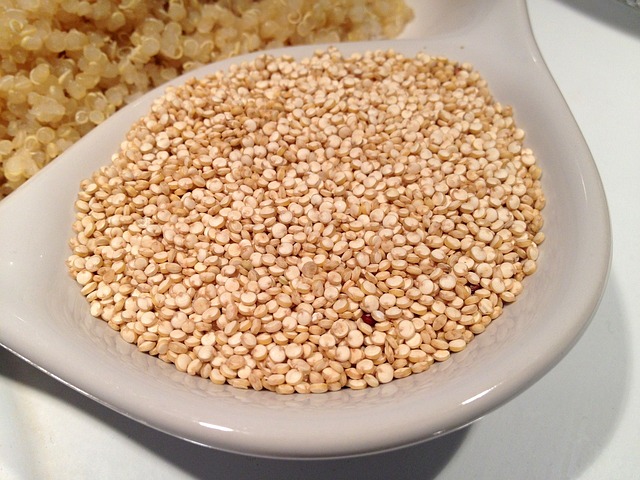Section 1: Introduction
Magnesium is an essential mineral that plays a key role in many bodily functions. It is required for more than 300 enzymatic reactions in the body, including protein synthesis, muscle and nerve function, and blood glucose control. Despite its importance, many people, especially those following a plant-based diet, fail to get enough magnesium in their diet. This blog post will explore the benefits of magnesium for health-minded plant-based people, as well as how to incorporate magnesium-rich foods into your diet.
Section 2: The Benefits of Magnesium
Research has shown that magnesium can provide a range of health benefits. For example, it can help to reduce inflammation, lower blood pressure, and improve mood. Magnesium is also important for bone health, as it helps to regulate calcium absorption and metabolism. Additionally, magnesium can improve sleep quality, reduce the risk of developing type 2 diabetes, and support cardiovascular health.
One study found that increasing magnesium intake by 100mg per day could reduce the risk of stroke by 9%. Another study showed that magnesium supplementation improved insulin sensitivity in people with type 2 diabetes. These findings highlight the importance of getting enough magnesium in your diet.
However, it’s important to note that excessive magnesium intake can cause side effects such as diarrhea, nausea, and abdominal cramping. As with any nutrient, it’s important to get the right amount to reap the benefits without experiencing negative effects.
Section 3: Magnesium Deficiency
Magnesium deficiency is common, especially among those following a plant-based diet. Symptoms of magnesium deficiency can include muscle cramps, fatigue, and mood changes. Long-term magnesium deficiency can lead to more serious health problems such as osteoporosis and heart disease. Therefore, it’s important to be aware of your magnesium intake and take steps to ensure you’re getting enough.
Magnesium deficiency can be caused by several factors, including inadequate dietary intake, excessive alcohol consumption, and certain medical conditions. People who follow a plant-based diet may be at higher risk of magnesium deficiency due to the lower bioavailability of magnesium in plant foods compared to animal products. However, there are plenty of plant-based sources of magnesium that can help to prevent deficiency.
Section 4: Magnesium-Rich Foods
There are many plant-based foods that are rich in magnesium. Some of the best sources include:
– Nuts and seeds, such as almonds, cashews, and pumpkin seeds- Legumes, such as black beans, chickpeas, and lentils- Leafy greens, such as spinach, kale, and Swiss chard- Whole grains, such as brown rice, quinoa, and oats- Avocado- Bananas- Dark chocolate (at least 70% cocoa content)
Incorporating these foods into your diet can help to increase your magnesium intake and reduce your risk of deficiency. It’s important to note that cooking can reduce the magnesium content of some foods, so it’s best to eat them raw or lightly cooked whenever possible.
Section 5: Magnesium Supplements
In addition to getting magnesium from food, it’s also possible to take magnesium supplements. However, it’s important to be cautious when taking supplements, as excessive magnesium intake can cause negative side effects. It’s best to speak to a healthcare professional before taking magnesium supplements, especially if you have a medical condition or are taking medication.
There are several different types of magnesium supplements, including magnesium citrate, magnesium oxide, and magnesium glycinate. Magnesium citrate is a popular choice, as it is well-absorbed and can help to relieve constipation. Magnesium oxide is less expensive but can be less well-absorbed. Magnesium glycinate is a form of magnesium that is less likely to cause gastrointestinal side effects.
Section 6: Magnesium and Exercise
Magnesium plays a crucial role in muscle function, making it particularly important for people who exercise regularly. Low magnesium levels can lead to muscle cramps and weakness, while adequate magnesium intake can help to improve exercise performance and recovery.
One study found that magnesium supplementation improved exercise performance in athletes, while another study showed that magnesium supplementation reduced muscle damage in endurance athletes. Therefore, it’s important for health-minded plant-based people who exercise regularly to ensure they’re getting enough magnesium in their diet or through supplements.
Section 7: Magnesium and Stress
Magnesium is also important for managing stress and promoting relaxation. It has been shown to have a calming effect on the nervous system, helping to reduce anxiety and promote sleep. Magnesium supplementation has also been shown to improve mood in people with depression.
In addition, stress can deplete magnesium levels in the body, making it even more important to ensure you’re getting enough magnesium in your diet or through supplements. Incorporating stress-reducing practices such as meditation and yoga can also help to support healthy magnesium levels.
Section 8: Magnesium and Heart Health
Magnesium is important for cardiovascular health, as it helps to regulate heart rhythm and blood pressure. Low magnesium levels have been linked to an increased risk of heart disease and stroke.
One study found that magnesium supplementation reduced the risk of heart disease in people with low magnesium levels. Another study showed that magnesium supplementation improved endothelial function, which is important for maintaining healthy blood vessels.
Incorporating magnesium-rich foods into your diet, such as leafy greens and whole grains, can help to support heart health. It’s also important to limit intake of processed foods, as these can be high in sodium and low in magnesium.
Section 9: Magnesium and Bone Health
Magnesium is important for bone health, as it helps to regulate calcium absorption and metabolism. Low magnesium levels have been linked to an increased risk of osteoporosis and bone fractures.
One study found that magnesium supplementation improved bone mineral density in postmenopausal women. Another study showed that magnesium supplementation reduced the risk of fractures in people with osteoporosis.
Incorporating magnesium-rich foods into your diet, such as leafy greens and nuts, can help to support bone health. It’s also important to ensure you’re getting enough vitamin D, as this vitamin helps the body absorb calcium and magnesium.
Section 10: Conclusion
Magnesium is an essential mineral that plays a key role in many bodily functions. Health-minded plant-based people who are interested in nutritional research can benefit from incorporating magnesium-rich foods into their diet, taking magnesium supplements if needed, and engaging in stress-reducing practices. By prioritizing magnesium intake, you can support your overall health and well-being.




